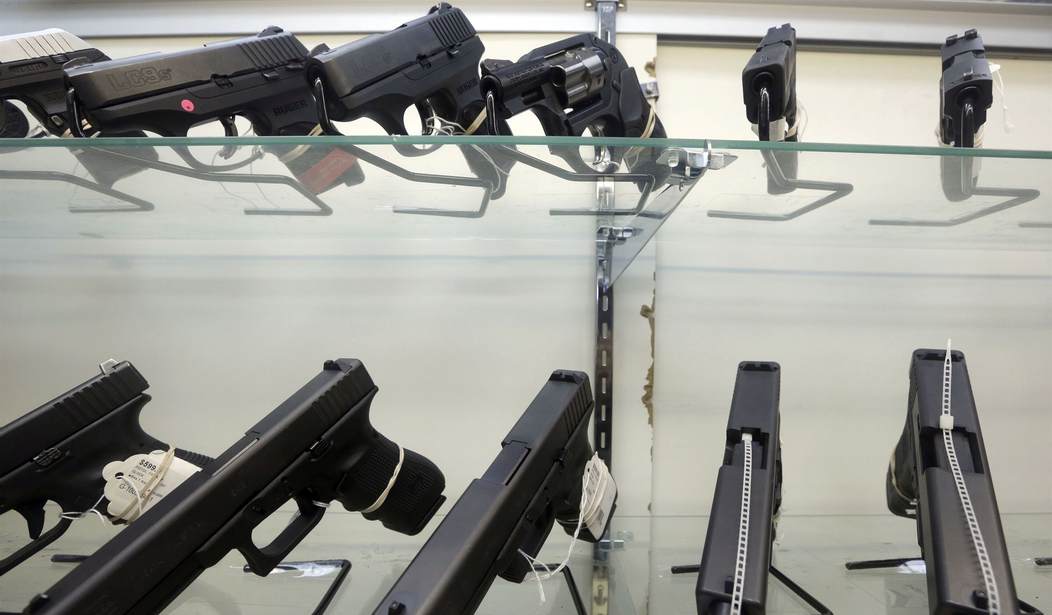Earlier today, Cam wrote about yet another poll regarding the public’s support for gun control. We hear a lot about these polls lately. A lot of people look at those as evidence that the public wants gun control and we simply have to pass it, democracy demands it.
However, is that right? Is the public demanding it?
More importantly, though, is that support growing or shrinking?
Well, I’ve offered up my own thoughts before, but that’s been based on a mere cursory look at the information. Over at the Washington Free Beacon, superstar Stephen Gutowski took a more detailed look. What he found is fascinating.
Two new polls show support for most gun control proposals has receded or remained constant despite a spate of mass shootings.
Polls from Quinnipiac University and an ABC News/Washington Post partnership asked about the gun control debate in America and specific gun control proposals. Both polls showed a general downward trend in support for new gun control measures even in the immediate aftermath of mass shootings in Texas and Ohio.
Neither poll found heightened enthusiasm for any gun control proposal which had been polled more than twice. Instead, they found support for gun control policies either relatively stable or declining, though still substantial.
…
The retreat from high-water marks following the February 2018 Parkland shooting was evident in nearly all of the questions. The Quinnipiac poll found general support for “stricter gun laws” fell 6 points to 60 percent since last February. It also found a 3 point drop in the percentage of people who say “Congress needs to do more to reduce gun violence” from 75 percent last February to 72 percent this September, and a 4 point drop in support for universal background checks over that time.
In other words, despite four mass shootings practically right on top of one another–something which one would think would drive support for gun control through the roof–nothing really happened. Nothing at all.
Gutowski does point out that one particular initiative, universal background checks, has maintained near-constant support as it continues to poll in the 90 percentile range.
However, he also notes that such support appears to have limits.
However, while expanding background checks to cover intrastate used gun sales between private individuals has enjoyed consistently high support in polling, it has been far less popular when proposed as ballot initiatives.
Both Nevada and Maine voted on universal background check initiatives in 2016. While Quinnipiac polls put support for the policy at 93 percent in June 2016, neither initiative came anywhere close to that level of support. Nevada’s initiative passed with only 50.45 percent support—a victory of 0.9 percent. Maine’s universal background check initiative failed, with 51.8 percent voting against it.
Nevada’s initiative, which required the FBI to conduct background checks on private sales, was never implemented. The state attorney general determined there was no way for Nevada to force the federal agency to conduct the checks. Instead, Nevada Democrats passed a similar bill along party lines this year that implemented universal background checks without using the problematic language.
In other words, more than 90 percent of the population seems to support the measures, but then they don’t vote on it. Why?
I’m just speculating, but I think that what happens is they like the idea of restricting private sales between individuals, but when it comes down to seeing actual legislation, they find that it restricts a whole lot more than that. It’s not just private sales, but also restricts loaning guns to people, passing them down to your families, or other such restrictions that cross the proverbial line for them.
So, they vote down the measures.
That’s the problem with polls, though. They can find support for laws in the abstract, but once we see written legislation and people figure out how it will impact their daily lives, much of that support evaporates.
All in all, though, the lack of new support for gun control seems to be good news. If people continue to report threats like they’ve been doing, and police act on those reports like they’ve been doing, we may see that overall support for gun control drop.
The question is just how many gun control laws will get passed first?








Join the conversation as a VIP Member